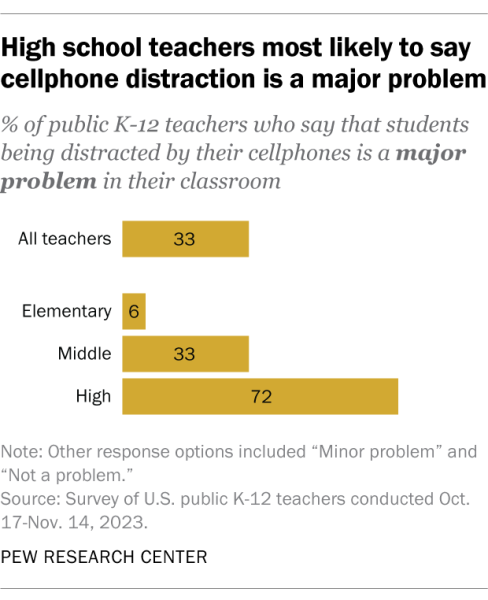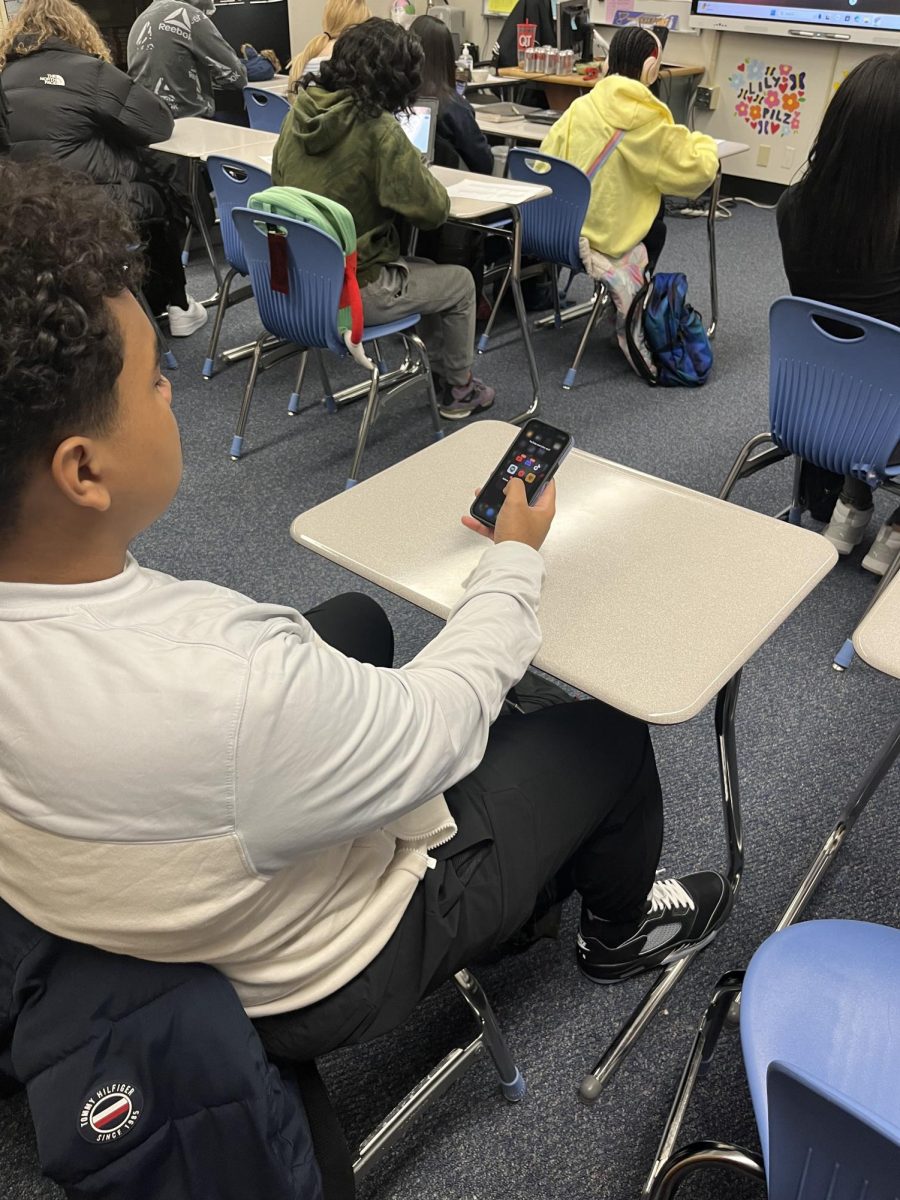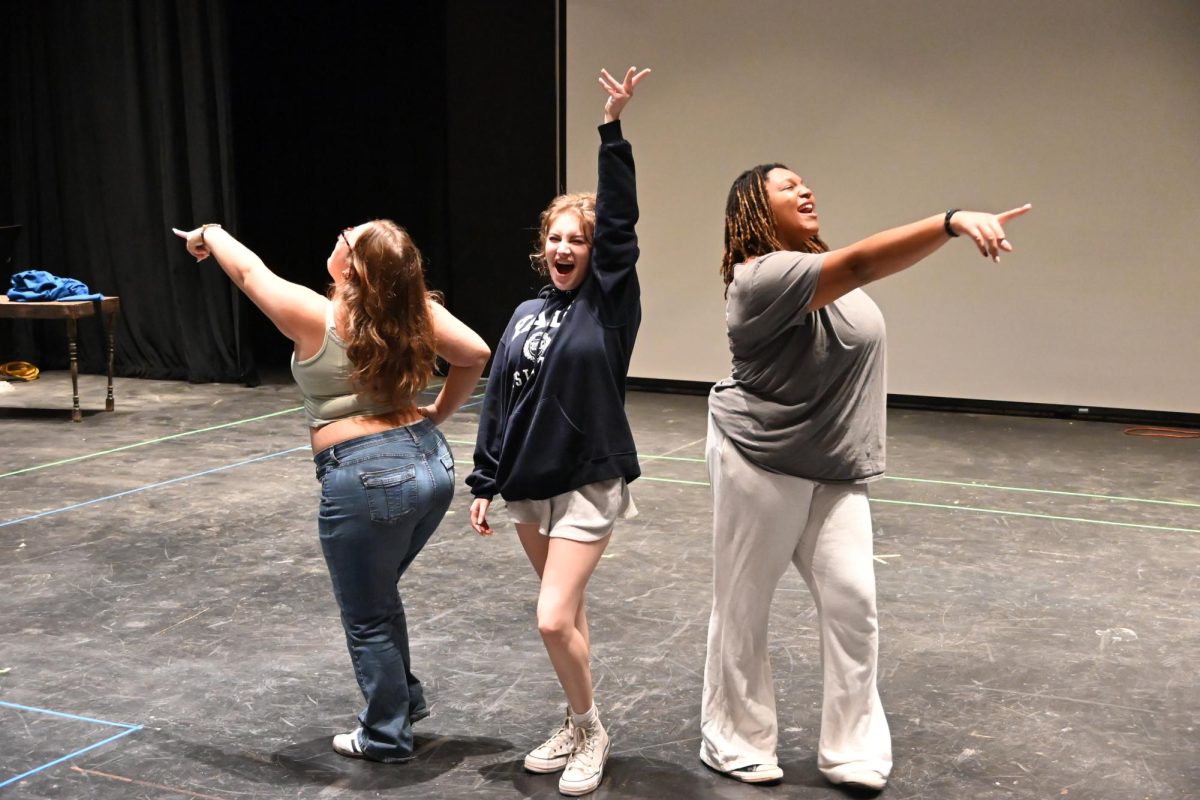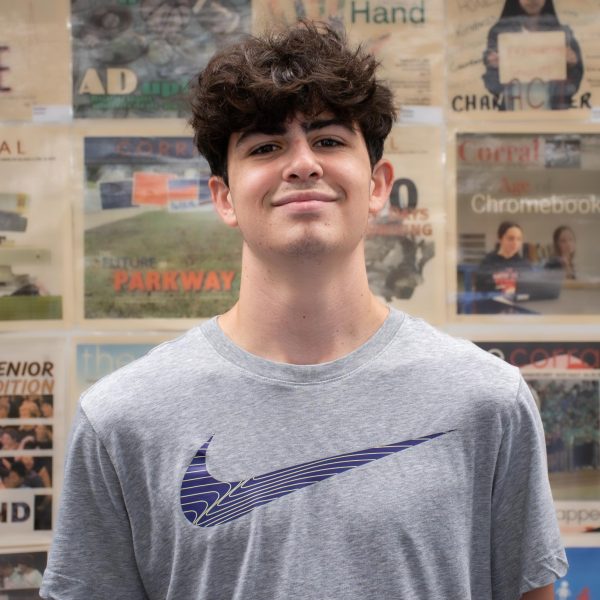Whether it’s on our wrists, in our pockets, or in our ears, Apple products have played an essential role in our daily lives. Since the release of the first iPhone in 2007 the concept of having a computer in the palm of your hand has attracted millions of buyers, including high school students. As phones started showing up in schools, concerns about how they were impacting students’ education began to surface.
Recently, Parkway sent out a survey to parents, teachers and students to help them decide how to approach this issue. Besides having the option to continue with the current Teacher-Directed Use policy, the survey presented two new options.
1.Classroom Restriction prohibits the use of phones and other personal electronic devices during class, allowing students to use their devices during lunch and passing periods.
2. Full Day Restriction would not allow students to access their personal devices for the entirety of the school day, except in the case of an emergency.
Sophomore Josh Wolfe says he likes the current policy Parkway is using.
“I think right now it’s at a good spot where you just put it in your backpack. I don’t think it needs to be more or less strict,” Wolfe said.
Although Wolfe admits that phones can be useful during school, he makes sure that his doesn’t become a distraction in the classroom.
“It’s convenient if you need to fill out a form or if you have some downtime, but overall I would say I don’t like using it very much in school because it can also be a distraction,” Wolfe said. “I don’t think you should be allowed to be on your phone unless it’s school related, because in a class it can be a big distraction.”
Though it can be distracting at times, Wolfe believes that phones belong in students’ possession at all times as we continue to see school shootings across the country.
“I don’t think that we should be putting our phones up in cubbies or a locked cupboard just in case something happens like a family emergency, or if there’s an intruder you want your phone to call your family,” Wolfe said.

While Wolfe does not see the need for many changes, English teacher Christian Schaeffer emphasizes the necessity that we have a consistent schoolwide policy.
“I think an agreed upon expectation is going to be good for kids,” Schaeffer said. “I think it would be hard if you go from Mr. Schaeffer’s class one semester, that is hardcore on phones, to [another] class the next semester, and he doesn’t care what you do.”
Schaeffer explains how he has seen improvements in how students are using their phones in class in the past year.
“I think I’ve seen an improvement with how students handle them in our department,” Schaeffer said. “Last year we instituted an informal policy of the zip pouches. I asked students to put them away and that I trust you attitude is how I prefer to roll versus ‘Give them to me.’”
Despite this progress, Schaeffer still expressed his concern about the alarming advancement of AI and how it is impacting our education. It raises the question: are phones what we should be worried about right now?
“I think AI is changing at the speed of light, and I think the applications bullet are still so new that we as educators don’t know what to look for. We as educators don’t know how to cure against it,” Schaeffer said.
For many students, using AI seems like an efficient way to get their work done quickly and correctly, but that is simply not what Schaeffer looks for.
“If I think about what I want my students to get out of my class, it’s not to be experts in Shakespeare, It’s not to be the next F Scott Fitzgerald,” Schaeffer said. “It’s that they can read on their own and think on their own and can be a citizen of the world using the brain that they’ve been given.”
According to a survey conducted by Pew Research Center, the amount of teens that use AI for their schoolwork doubled in the past year. Schaeffer shares his message to students who are relying on AI tools to do their schoolwork.
“You’re putting part of your brain up for sale to whatever AI tool is out there that’s free, or that’s accessible, or that’s new that week, you’re just leasing out part of your brain space,” Schaeffer said. “You’re going to get through high school without having had an original thought, and that’s scarier than a low grade on a paper or a test.”
This rapid growth in Artificial Intelligence is something that we have only seen in the past couple of years, but the growing issue with phones started years ago. I spoke with sophomore grade principal, Shruti Upadhyay about the conflicts she faced as an educator when cell phones became common in schools.
“We knew it was a problem, but the technology was moving at a very fast rate,” Upadhyay said. “It’s really hard to implement rules and policies without understanding what it is or how to access it and when phones started getting into student hands it was such a quick thing.”
Before her time at Central, Upadhyay worked in the Ladue District for 18 years. While she was there she and her colleagues introduced a new strategy to help regulate phone usage in the classroom.
“We came up with a universal phone policy where students had to put their phone in the zip pouch as soon as they walked into the class, and then they could take it when they leave class,” Upadhyay said.
Upadhyay details the positive impact that she saw in classrooms following the implementation of this strategy.
“It made a huge difference on building community in the classroom and increasing student engagement,” Upadhyay said. “Overall, within one year kids themselves would tell me ‘oh my God, I focus so much better without the phone, like, I really don’t need that phone.’”
Parkway announced that they plan to make a decision by spring, but any changes wouldn’t be implemented until next year to allow the school system to adjust.





